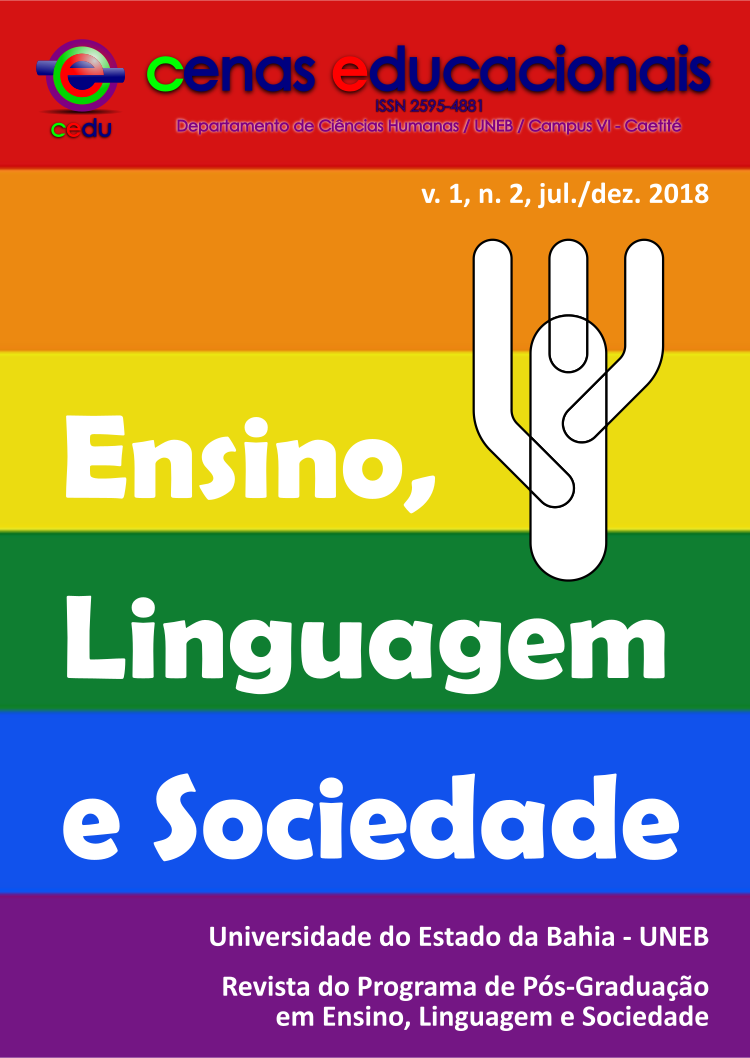EDUCATING A COMPLEX AND TRANSDISCIPLINARY PERSPECTIVE: REFLECTIONS FOR A SENSITIVE TEACHING
Keywords:
Transdisciplinaridade. Complexity. Teaching. Integral Subject. Sensitive.Abstract
In today's society, the Cartesian perspective is not enough to understand the complexity and dynamicity of reality and the relationships that are established in social and environmental scenarios, as well as in the interpersonal relationships that exist. For this reason, we believe that the transdisciplinary perspective brings us significantly closer to this reading of reality and world understanding. Through this perspective, we can be sensitive to the human nature of each subject, respecting their singularity and fostering educational processes committed to the integral formation of being. With some theoretical reflections on these ideas, we bring this text that invites us to reflect and apply in our personal and professional life as educating teachers, as well as in the intentions and educational practices with which we engage and carry out in the different educational scenarios in which we are inserted.Downloads
References
CAPRA, Fritjof. O ponto de Mutação: a ciência, a sociedade e a cultura emergente. (Trad. CABRAL, Alvaro); São Paulo: Cultrix, 2006.
CAPRA, F. A teia da vida: Em nova compreensão cientifica dos sistemas vivos. São Paulo. Cultrix, 1996.
FREIRE, Paulo. Pedagogia da autonomia. 9. ed. Rio de Janeiro: Paz e Terra, 1999.
FREIRE, Paulo. Pedagogia da autonomia: saberes necessários à prática educativa. São Paulo: Paz e Terra, 2002.
GADOTTI, Moacir. Pensamento Pedagógico Brasileiro.8ª Ed. São Paulo: ática, 2006.
GARCIA, C. M. Formação de professores: para uma mudança educativa. Portugal: Porto editora, 1999.
CORREIA, J.T. Inovação Pedagógica e Formação de Professores. 2ª ed. Rio Tinto/Portugal; editora ASA, 1991.
GATTI, B. A., BARRETO, E. S. de S. e ANDRÉ, M. E. D. de A. Políticas docentes no Brasil: um estado da arte. Brasília: UNESCO, 2009.
HALL, S. Da diáspora: identidades e mediações culturais. (1a impressão revista) Belo Horizonte/Brasília: Editora UFMG/Unesco, 2006.
MORAES, Maria Cândida. Ambientes de aprendizagem como expressão de convivência e transformação. In: Moraes, Maria Cândida; NAVAS, Juan Miguel Batalloso. Complexidade e transdisciplinaridade em educação: teoria e prática docente. Rio de
Janeiro: Wak Ed., 2010. p. 23-62, 175-206.
MORAES, Maria Cândida. Educação e sustentabilidade: um olhar complexo e transdisciplinar. In: MORAES, Maria Cândida; SUANNO, João Henrique; ORG. O pensar complexo na educação: sustentabilidade, transdisciplinaridade e criatividade. Rio de Janeiro: Wak Editora, 2014. p. 21-42.
MORAES, R.; GALIAZZI, M. do C. Análise textual discursiva. Ijuí: Ed. Unijuí, 2007.
MORIN, Edgar. Educação e complexidade: os sete saberes e outros ensaios. 1921. Tradução de Edgard de Assis Carvalho. 4. ed. São Paulo: Cortez, 2007.
MORIN, Edgar. Os sete saberes necessários à educação do futuro. São Paulo:Cortez, 2001.
NICOLESCU, Basarab. O manifesto da transdisciplinaridade. Trad. Lúcia Pereira de Souza. São Paulo: Trion, 1999.
NICOLESCU, Basarab. Um Novo Tipo de Conhecimento – Transdisciplinaridade In Educação e Transdisciplinaridade. São Paulo, TRIOM, 2000.
NICOLESCU, Basarab. A carta da transdisciplinaridade. In Manifesto da Transdisciplinaridade. São Paulo, TRIOM, 2005.
NICOLESCU, Basarab. Educação e Transdisciplinaridade. II São Paulo: TRIOM, 2007.
NICOLESCU, Basarab. Educação e Transdisciplinaridade.III São Paulo: TRIOM, 2008.
OLIVEIRA , Gilvaneide Ferreira. O programa Ricardo Ferreira enquanto dispositivo de ação para a inovação pedagógica no âmbito da formação continuada de professores das ciências naturais. Tese (Doutorado em Ciências da Educação) - Universidade da Madeira, UMA, Portugal, 2011.
PIMENTA, S. G e ANASTASIOU, L. G. C. Docência no Ensino Superior. 2 ed. São Paulo: Cortez, 2005. 282 p.
SANTOS, Boaventura de Sousa. Um discurso sobre as Ciências. 16ª ed. Porto: Alegre, 2010.
VEIGA, I. P. A. Professor: tecnólogo de ensino ou agente social. In: AMARAL, VEIGA (Coord.). Formação de professores: políticas e debates. 3ª ed. Campinas: Papirus, 2009.
Published
How to Cite
Issue
Section
License
Copyright
The submission of originals to Cenas Educacionais (Educational Scenes - CEDU) implies the transfer, by the authors, of the publication rights. The copyright for the manuscripts published in this journal is the author(s), with CEDU rights over the first publication. Authors(s) may only use the same results in other publications by explicitly indicating CEDU as the means of the original publication.
Creative Commons License
Except where otherwise specified, the terms of a Creative Commons Attribution-ShareAlike 4.0 International License license apply to the material published in this journal, which allows unrestricted use, distribution and reproduction in any medium provided the original publication is correctly cited.






 This work is licensed with a License
This work is licensed with a License 